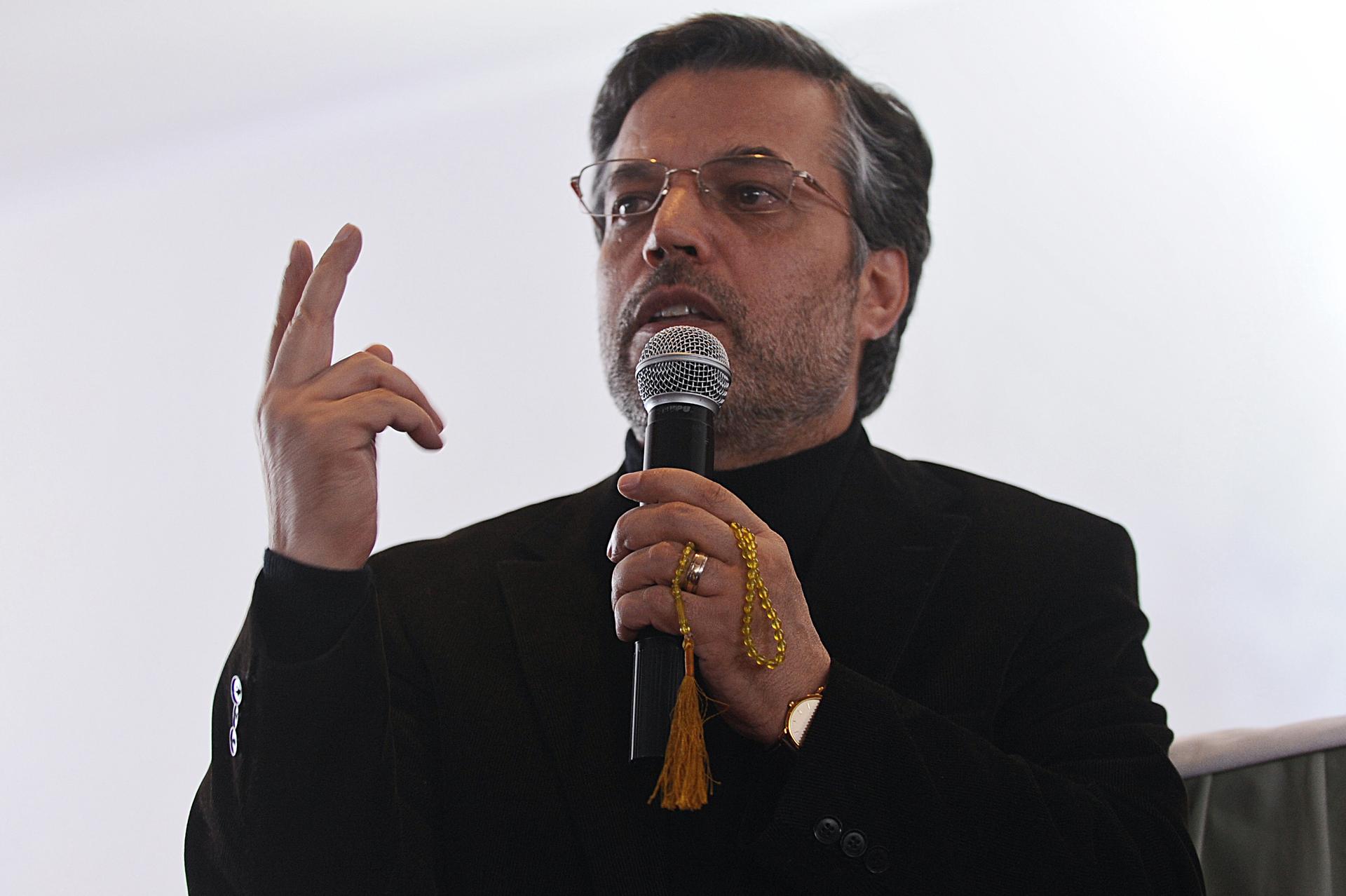Enter Mr. Speaker
Yunus Qanuni, former Speaker of Parliament, could not regain his chairman’s post in the new legislature. But will he get the Foreign Ministry as a consolation prize?
Afghanistan’s long drawn-out tussle over the Speaker’s chair ended suddenly and without fanfare on Sunday, as the exhausted candidates cast their votes for Abdul Rauf Ibrahimi.
Who?
Well, exactly.
Ibrahimi, a candidate from northern Kunduz province and an ethnic Uzbek, would not have been anyone’s first choice for the post. In fact, he wasn’t even among the top 20.
But over the past month, ever since two Parliamentary titans squared off with neither able to triumph, the legislature has been dead in the water, incapable of any concrete action except endless debate over who should be in charge.
On January 29, Abdulrab Rassoul Sayyaf, a Pashtun mujaheddin commander who has been widely accused of war crimes for his actions in the civil war of the 1990s, put his name forward to head the Parliament. His main rival was Yunus Qanuni, a prominent member of Afghanistan’s main opposition group and an ethnic Tajik.
Sayyaf was backed by the government, but Qanuni, who was the Speaker in the last legislature, gave him a run for his money. The poll was quite close: in a runoff between the two men Sayyaf received 119 votes, Qanuni 116. Neither was able to clear the 50-percent-plus-one hurdle necessary to win in the 249-member body, due to several abstentions and a few invalid ballots.
For the past month, Parliament has been doing nothing except trying to settle the question. Four separate rounds of voting have been held, all with no result. Finally, a special committee charged with ending the stalemate came up with the brilliant idea of electing someone that nobody wanted.
It’s called compromise, Afghan-style.
Ibrahimi’s ethnic background will not allow him to pose a major threat to the status quo. Uzbeks are a small minority in Afghanistan: Although no one knows exactly, since no valid census has been taken for almost 40 years, the Uzbeks are thought to represent about 9 percent of the population, according the CIA’s Factbook on Afghanistan.
The Pashtuns, on the other hand, are the largest ethnic group in the country, with about 42 percent, and the Tajiks make up the second major block, with 27 percent.
So for now the question is settled, sort of. A Speaker has been elected, and the Parliament can finally get down to work.
But the question of electoral fraud is still hanging over their heads, with a Special Tribunal poised to summon several dozen of the MPs for questioning.
The government is threatening to bring criminal charges against any Parliamentarian found to be guilty of fraud; given the far-from-ideal September ballot, this could apply to any number of successful candidates.
Cynics are speculating that President Hamid Karzai will use the Special Tribunal as a disciplinary board to settle scores with political rivals.
“It’s turning into a witch hunt,” as one international consultant remarked.
The International Crisis Group has warned that prolonging the electoral standoff could increase the risk of civil war, and advises that the Special Tribunal should be disbanded immediately, since it lacks a clear legal mandate.
The highly esteemed think-tank further criticized the international community for going ahead with the Parliamentary elections despite clear danger signals.
“The warning signs that the September 2010 parliamentary polls could destabilize the country were readily apparent months before the elections were held,” said Candace Rondeaux, the ICG’s Senior Analyst for Afghanistan, at a press briefing widely covered in the Afghan media. “But Afghan leaders and the international community chose to turn a blind eye… Flaws in the process were ignored in favor of maintaining the false narrative of greater momentum in the battle against the Taliban.”
So the Parliamentary crisis has ended, but with a whimper, not a bang.
There are many indications that the compromise over the Speaker could have far-ranging consequences for the country as a whole. It has been widely reported that a deal was struck between the two main rivals and the government, with Qanuni being offered the Foreign Ministry and Sayyaf poised to become Chief Justice of the Supreme Court.
Both men have denied that they bargained away their clout, but rumors persist. The details will soon become apparent.
At this point, almost nothing would surprise the weary Afghan pubic, or the shell-shocked foreigners who have been witnessing the spectacle.
Still, the Afghan manager of an international organization that monitors Parliamentary affairs was distressed by the prospects ahead.
“Qanuni would not be a good Foreign Minister,” he said firmly, although he declined to elaborate. “And Sayyaf as Chief Justice? We would have been better off with him as Speaker.”
Every day, reporters and producers at The World are hard at work bringing you human-centered news from across the globe. But we can’t do it without you. We need your support to ensure we can continue this work for another year.
Make a gift today, and you’ll help us unlock a matching gift of $67,000!
